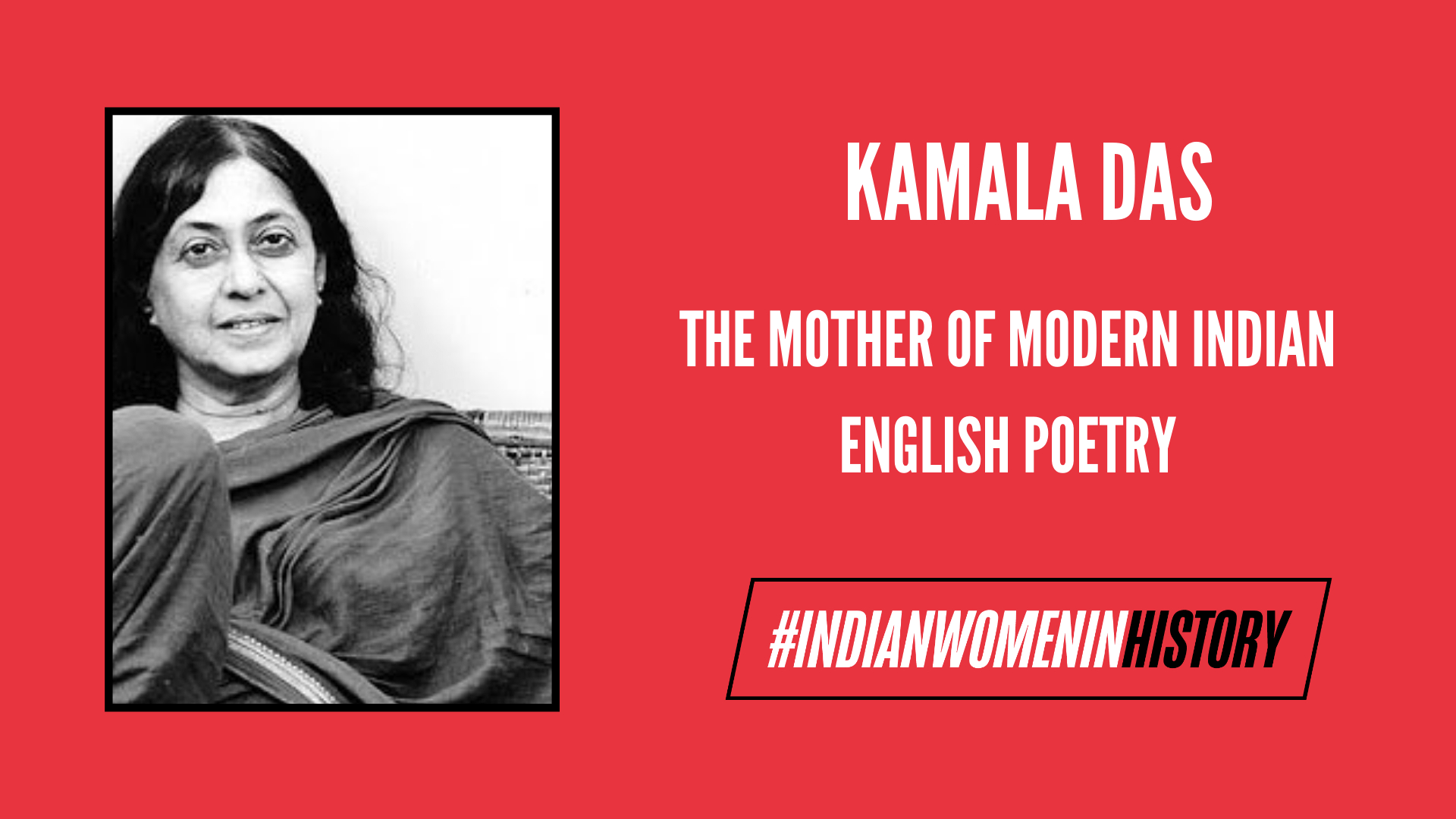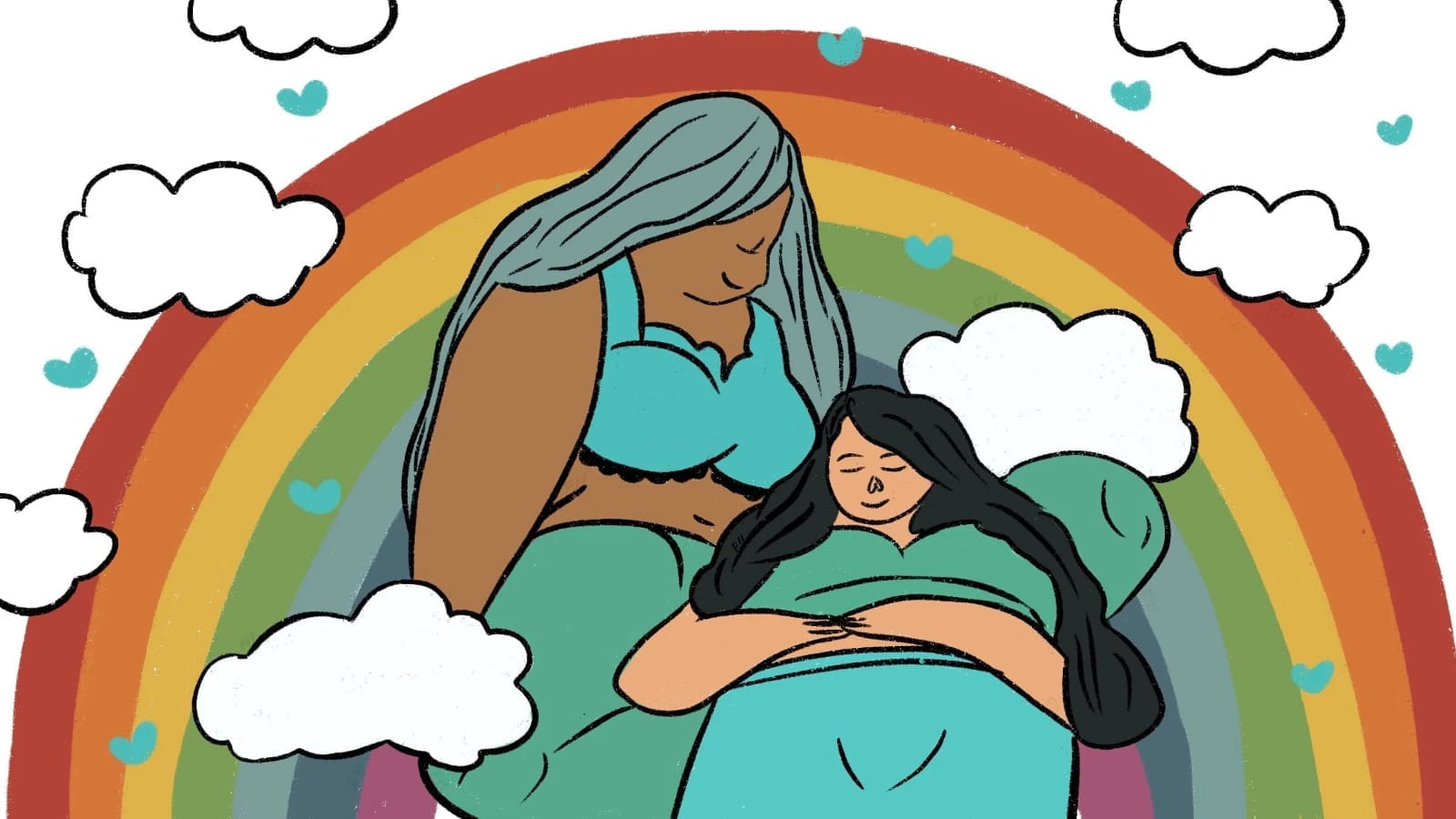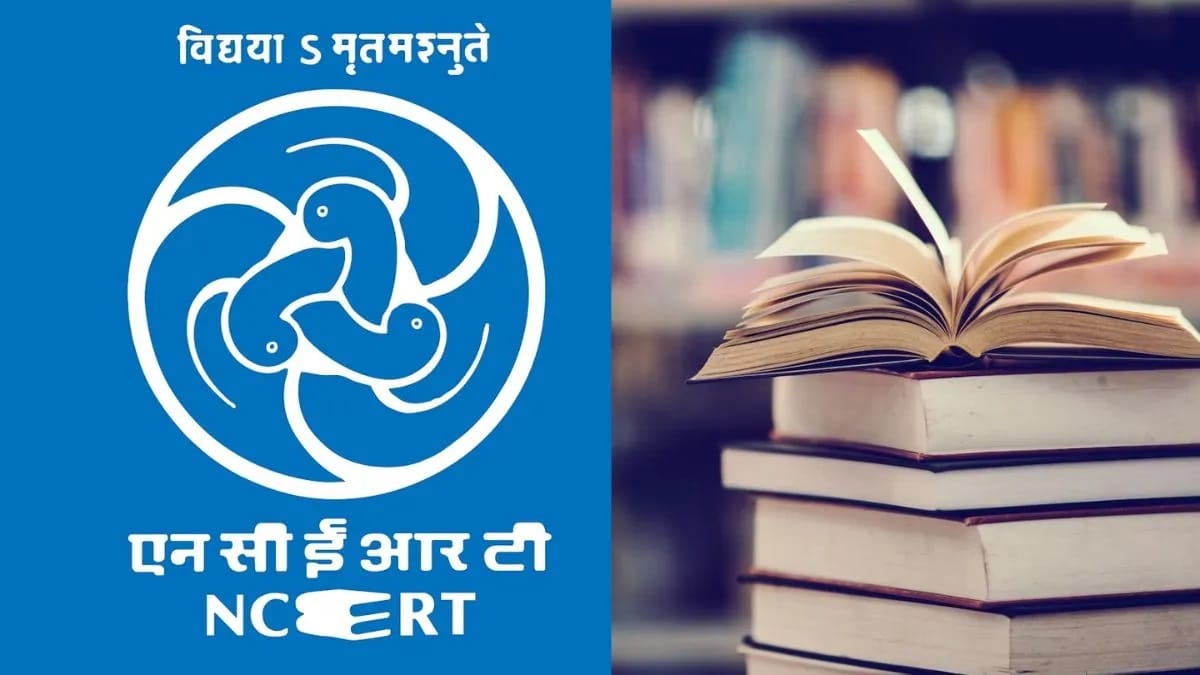Kamala Das was one of the most prominent feminist voices in the postcolonial era. She wrote in her mother tongue Malayalam as well as in English. To her Malayalam readers she was Madhavi Kutty and to her English patrons she was Kamala Das. On account of her extensive contribution to the poetry in our country, she earned the label ‘The Mother of Modern Indian English Poetry’. She has also been likened to literary greats like Sylvia Plath because of the confessional style of her writing. On the occasion of her birth anniversary, we look into the remarkable life of this literary icon.
Childhood
Kamala Das was born on 31st March 1934. A part of her childhood was spent in her ancestral home in Malabar, Kerala and the other part in Calcutta where her father was posted for work. Kamala Das belonged to a family considered the literary royalty of Kerala. Her mother Balamani Amma was a famous poet and her grand uncle Nalapat Narayana Menon a respected writer. Das’ childhood as described in her autobiography was very culturally enriched.
Her fascination with writing began at a young age while watching her elders immersed in their work. When she was as young as six, she started a manuscript magazine where she would write ‘sad poems about dolls who had lost their heads and had to remain headless for eternity’ while her brother would illustrate the verses. As she grew older she put together a children’s theatre with her brother, where they performed plays ranging from Victor Hugo’s Les Miserables to Kalidas’ Sakuntalam. The stage was set in the patio of their ancestral home and was open for all the villagers to come see.
Early Work and the Struggles of a Female Writer
She was married off to Madhava Das, an employee at the Reserve Bank of India (RBI) at the age of 15 and moved to Bombay with her husband. At a very young age, she had to find a way to pursue her passion for writing while being weighed down by the expectations of her husband, her family and the society at large of her ‘duties’ as a wife and mother. On being a female writer in that day and age, she said:
“A woman had to prove herself to be a good wife, a good mother, before she could become anything else. And that meant years and years of waiting. That meant waiting till the greying years. I didn’t have the time to wait. I was impatient. So I started writing quite early in my life. And perhaps I was lucky. My husband appreciated the fact that I was trying to supplement the family income. So, he allowed me to write at night. After all the chores were done, after I had fed the children, fed him, cleaned up the kitchen, I was allowed to sit awake and write till morning. And that affected my health”.
With her poems she tried to give voice to a generation of women who were confined to their households, and considered a commodity to be exchanged through marriage. She portrayed the women in her poems as human; with desires, pain and emotions just like men.
Her writing consisted of vivid descriptions of menstruation, puberty, love, lust, lesbian encounters, child marriage, infidelity and physical intimacy.
In her poem titled ‘A Widow’s Lament’ she describes feeling isolated in a male-dominated society that she could never call her own, because it had no place for its women:
‘This has always been
Someone else’s world not mine
My man my sons forming the axis
While I, wife and mother
Climbed the glass panes of their eyes’
In one of her earliest works, in the poem ‘An Introduction’ she expresses her resentment in being confined to gender roles that she did not choose for herself and her desire to break out of them:
‘. . . Then I wore a shirt and a black sarong, cut my hair short and ignored all of this womanliness.
Dress in sarees, be girl or be wife, they cried.
Be embroiderer, cook or a quarreller with servants.’
When her family landed in financial trouble, she had to switch to being a columnist because it paid better and poetry took a backseat in her life. She wrote regularly for the popular weekly, Malayalanadu. She described her experiences of womanhood, with a certain guiltless honesty that the people of Kerala had not witnessed so far. Her father V M Nair, Managing Director of the Mathrubhumi group and a powerful figure in the journalism industry tried to put pressure on her editor to stop publishing her work but she did not yield to his demands.
My Story: An Autobiography
In 1973, her autobiography ‘Ente Kadha’ (My Story) was released in Malayalam. It consisted of a compilation of her weekly columns in Malayalanadu that had already become a sensation across the state. Fifteen years later, it was translated into English with more text added, many parts rewritten and published with the title ‘My Story’. K Sachithananthan, in his forward for the book, concludes:
“I cannot think of any other Indian autobiography that so honestly captures a woman’s inner life in all its sad solitude, its desperate longing for real love and its desire for transcendence, its tumult of colours and its turbulent poetry.”
The book is about her personal and professional experiences as a woman in a patriarchal society and her quest for love in its truest form. Her writing consisted of vivid descriptions of menstruation, puberty, love, lust, lesbian encounters, child marriage, infidelity and physical intimacy. She introduced her readers to the concept of female sexuality, a notion that was nonexistent until then.
She talked of her ‘brush with love’ with an eighteen year old girl, right before Das was about to be married off. She talked of having to look for love ‘outside its legal orbit’ because she was unhappy in her loveless marriage. She talked with an audacity never seen before as she wrote unapologetically about everything the conservative Kerala society had managed to box in for very long. It managed to evoke such a widespread reaction which was equal parts shock and equal parts adoration that it has become a cult classic in the genre of Indian autobiographies ever since.
On being asked why her book shocked the Malayali audience, she felt that it never actually did, that they were pretending to be shocked to prove their ‘innocence’. She believed she was merely being vocal about things that had been happening for years.
Other Work and Accolades
Kamala Das went on to produce what is considered some of the best work in modern Indian literature. Some of her notable works in English are the novel Alphabet of Lust (1977), the collection of short stories Padmavati the Harlot and other stories (1992) and a compilation of her poetry Summer in Calcutta (1973). In Malayalam, they include Balyakalasmaranakal (The Memories of Childhood), Chandanamarangal (Sandalwood Trees) and many more.
She introduced her readers to the concept of female sexuality, nonexistent until then.
Her literary work earned her a lot of recognition and won her numerous accolades. She won the P.E.N.’s Asian Poetry Prize in 1963, the Kerala Sahitya Academy Award in 1969 for the short story Thanuppu (Cold) and the National Sahitya Academy Award in 1985. She was also shortlisted for the Nobel Prize for Literature in 1984. So wide was her reach that much of her work has been translated into numerous foreign languages including French and German.
Later Life and More ‘Controversies’
Whatever Kamala Das decided to do in her life stirred a controversy in her home state. In her later years when she decided to turn from writing to painting, her nude paintings caused yet another furore. So did her decision to conversion to Islam and to be called Kamala Surayya in the late 1990s.
Her critics would often speculate that most of her actions were to seek attention. Addressing the controversies surrounding her she once said in an interview with Shobha Warrier:
“[It is] probably because I have some courage to be what I am, and I don’t see my faults as faults – I see them as characteristics; strengths too. Why not, if you realise that you are only a human being?”
It makes you wonder, whether a woman deciding to do as she pleases can ever be seen as someone living life simply the way she wishes to and nothing else?
Though she never formally associated herself with the feminist movement or described herself as one, she was a feminist in many ways. She never let anyone deter her from doing what she wanted to do by constantly rebelling against the system with her work. She created for herself a space to have the freedom of choice. She dared to find her voice in a society that actively tried to shut it down and she used that voice to express her experiences of the feminine sensibility that were universal in many ways. This makes her fiercely feminist in every sense of the word.
On being asked why her book shocked the Malayali audience, she felt that it never actually did – they were pretending to be shocked to prove their ‘innocence’.
Kamala Das died in Pune, on 31st May 2009, at the age of 75. Her life story is currently being paid homage to in two rival biopics that will showcase different aspects of her life – one by Tamil filmmaker Leena Manimekalai and the other by Malayalam director Kamal which will star Manju Warrier as Kamala Das.
Also read in Hindi: कमला दास : प्रभावशाली और बेबाक़ एक नारीवादी लेखिका
About the author(s)
Sheryl is a science graduate who now wants to become a lawyer. Her interests include feminism in pop culture, cats and Netflix.




